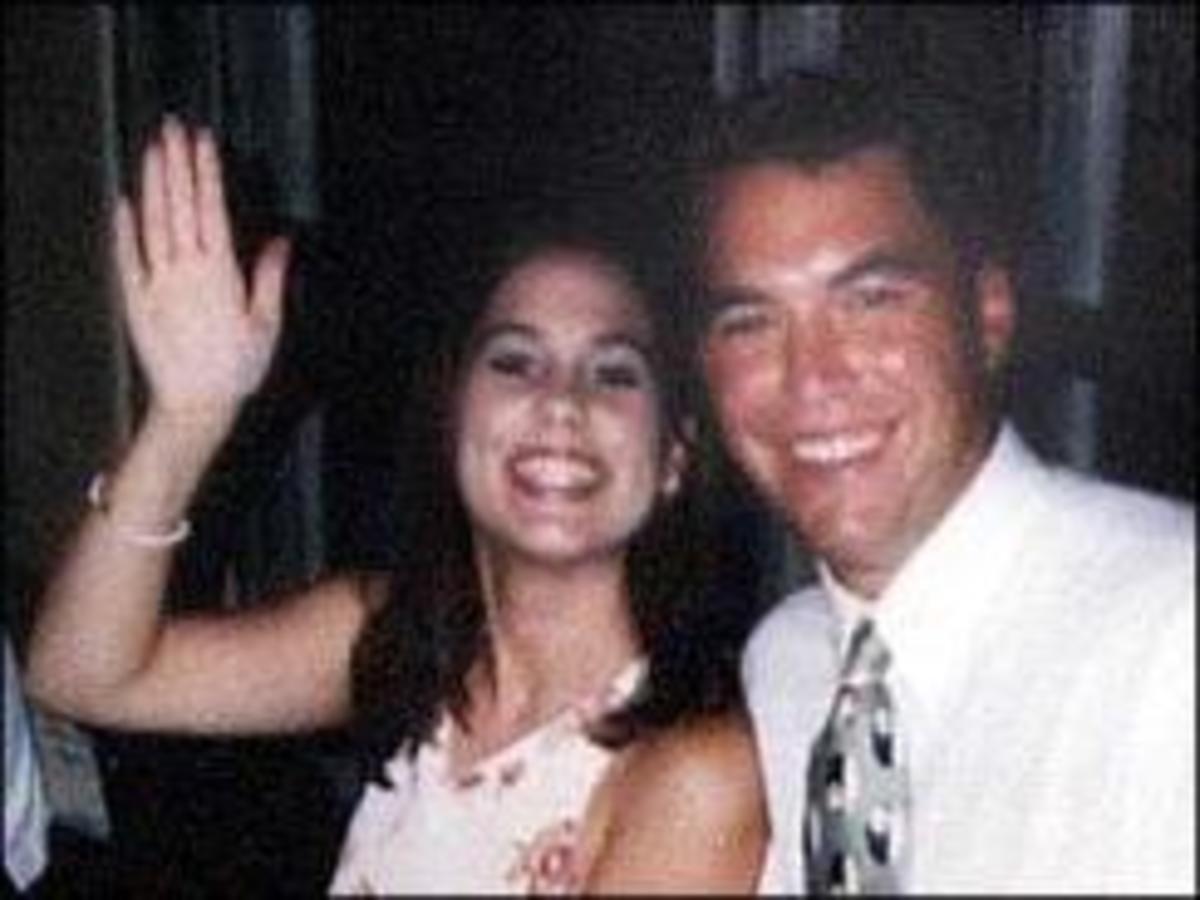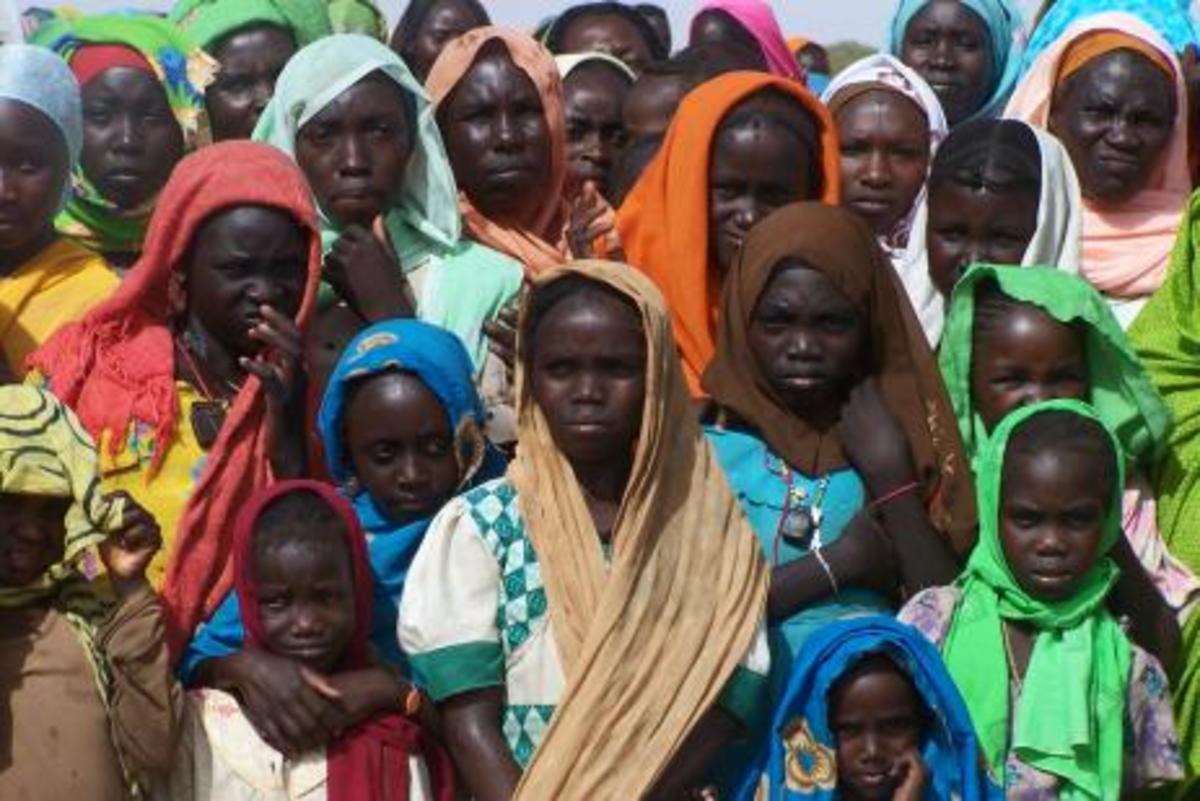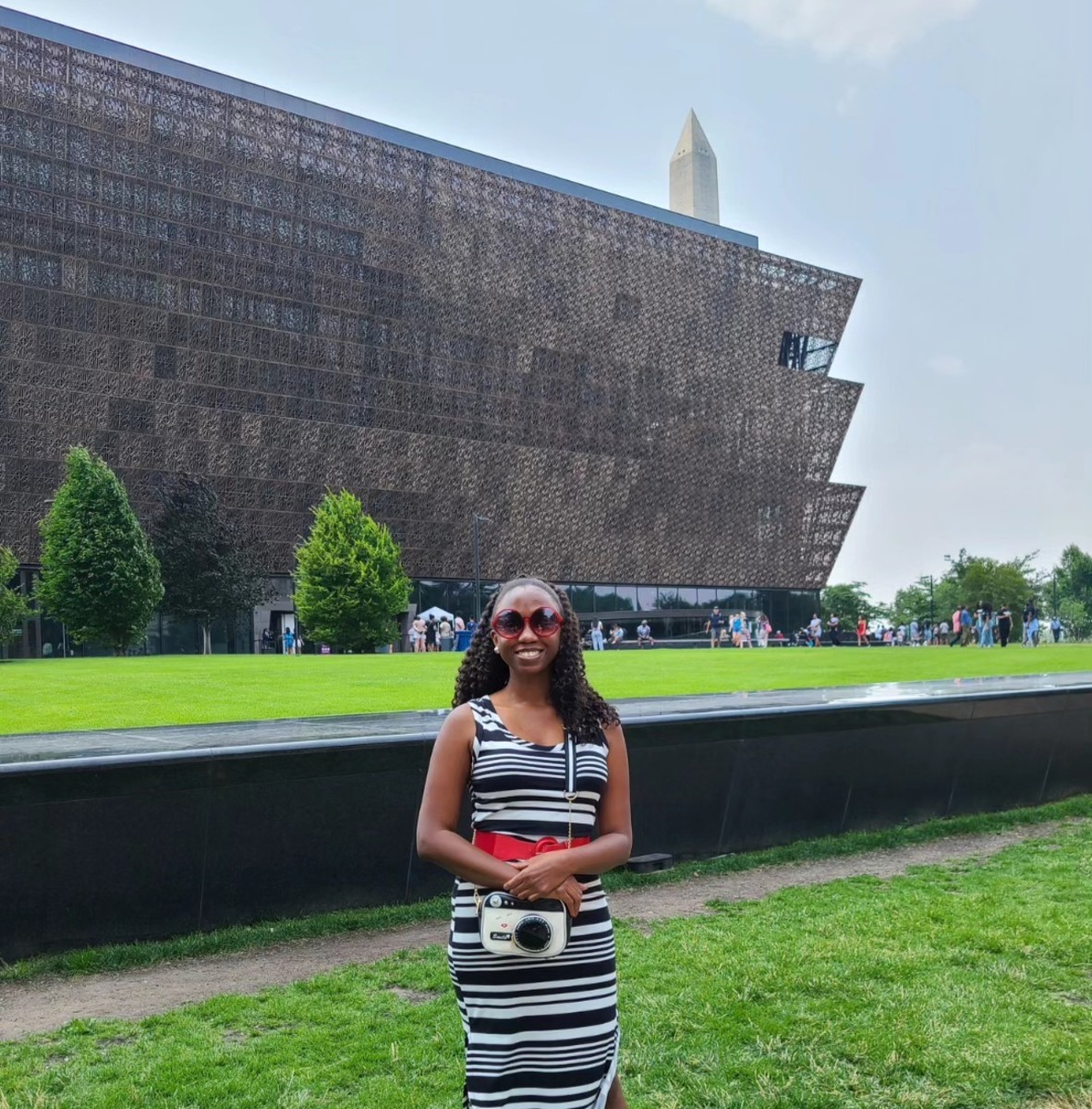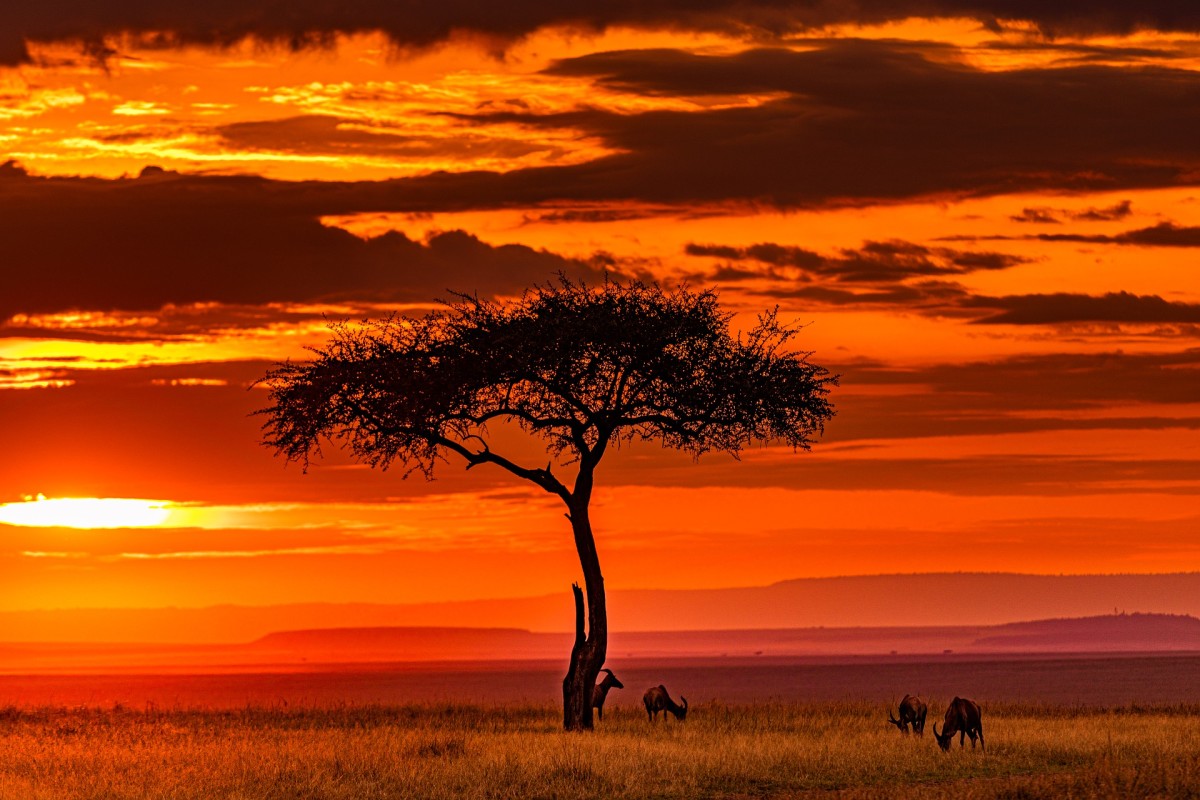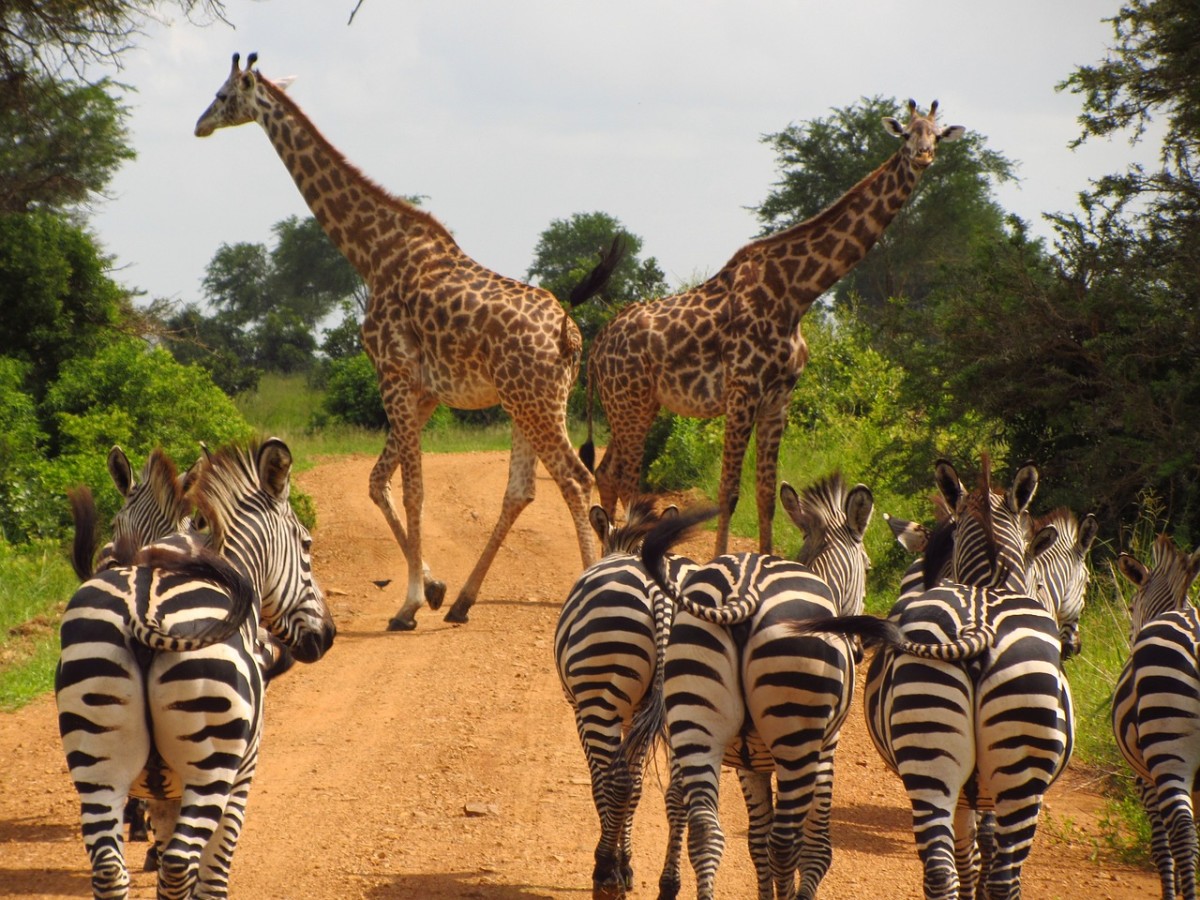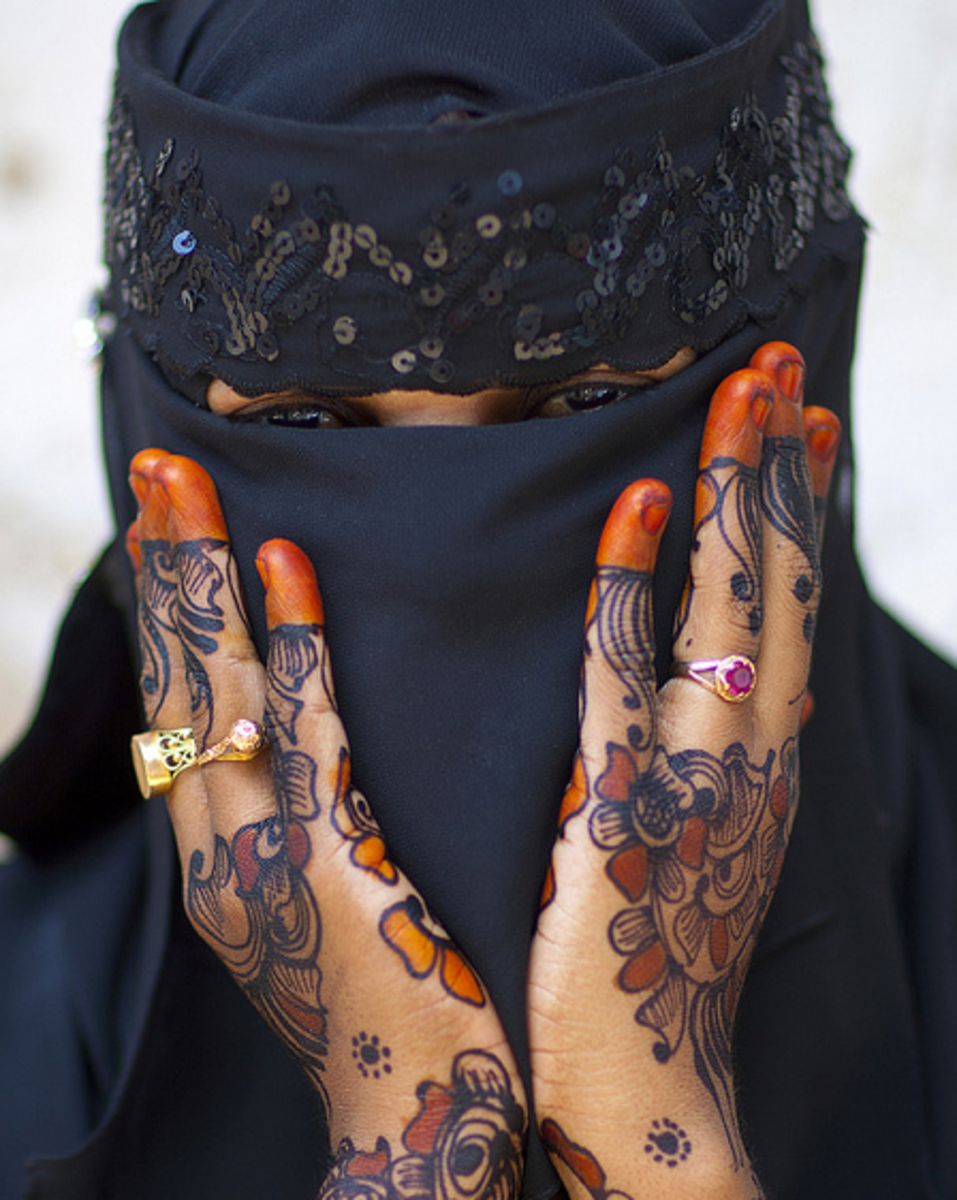- HubPages»
- Travel and Places»
- Visiting Africa»
- Travel to Eastern Africa
Living with the African Maasai Tribe
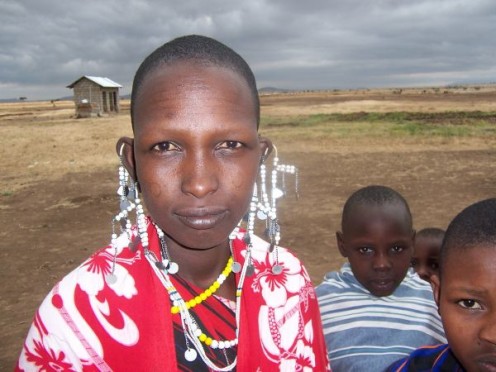
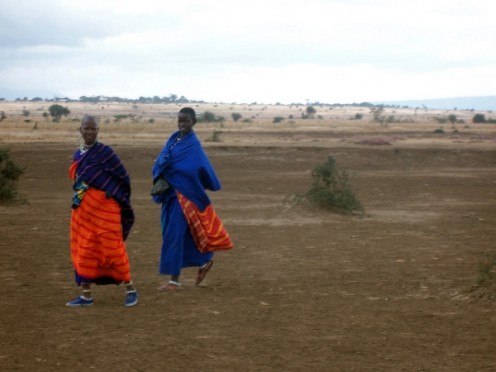
How Fate Led One Girl into the Heart of Primitive Living
It was like a ghost was in the midst. Shocked, wide-eyed, and apprehensive; my little African friends really didn’t know what to make of me when I first arrived at the village. “What is this stranger doing here?” they thought. “Her eyes are the color of water. Her skin; like the clouds. And she’s taller than most men.” They kept their distance, just staring at me like a kid glued to the TV set.
I said ‘hello’ to them in their native tongue, which translates to ‘keyaa.’ After practicing the Maasai language for several days now, the disappointment I felt was evident when I couldn’t entice a reaction. Was I saying it wrong, I wondered? Had all my practice gone terribly astray? The opportunity to live with the Maasai Tribe had been a month in the making. I had heard from a fellow backpacker in Kenya that it was possible, but I didn’t know the course of action I needed to take. One could see however, that this was the beginning of a beautiful experience; it was evident that fate led me into the hearts and care of this magnificent culture.
The Search Begins
My quest to meet and live with these inhabitants began the week prior. I had been traveling all over East Africa in my 11-person group from the college Outdoor Program, going from one national park to another. I felt trapped and disappointed that I was missing out on what I thought was the last frontier. I needed culture; diversity, adventure… and it seemed as if I was never going to get it.
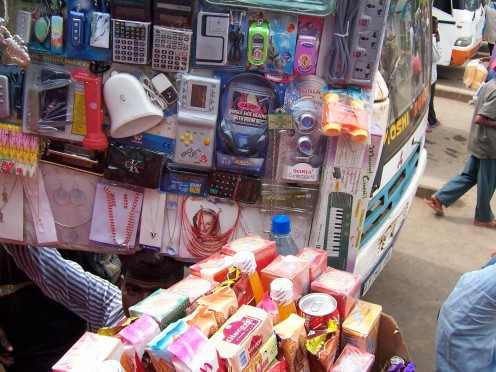
Upon arriving in Arusha, the safari capital of Tanzania, I felt irritated after a grueling 24-hour bus ride from Uganda, so I left my group at the hostel and ventured out in the town not exactly sure of what I was searching for, but hoping that it would cross my path.
A group of locals had been chasing me for blocks trying to sell hand-made necklaces and earrings. “Sista buy this, sista look at this,” they would yell. I couldn’t run fast enough and every corner I turned seemed like another human barricade.
I spotted a 5-star hotel in the distance. “Ah ha!” I thought. After noticing that the security guards were holding AK-47s, I knew I could somehow make this hotel my refuge. Just as I had foreseen, the peddlers immobilized at the hotel gate; I could see them staring up at me from the street below with a faint look of disappointment.
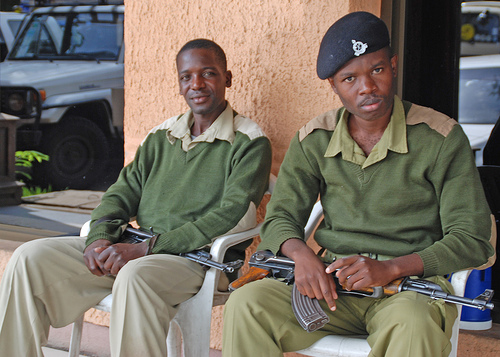
Meeting Neima
Once inside, I noticed a smiling face glancing in my direction. She was an employee of the hotel, well dressed in black pressed pants and a maroon collared shirt. I was instantly drawn to this young African woman; she seemed to possess a quality that I had been searching for since my arrival into this foreign land.
Neima, as I found her name to be, immediately started speaking with me, asking questions about my origin and telling me that it’s every African’s dream to travel to America. They think everything is fabulous in the States; that we all live like Rachel and Ross on 'Friends,' and that all one has to do to earn a living is become a rapper like 50-Cent, or Dr. Dre. I had to sadly inform her that most Americans live paycheck-to-paycheck and are in debt. Neima didn’t want to believe it.
After exchanging some more words, I had finally expressed interest in wanting to spend some time with a local Maasai Tribe and it turned out that she was of Maasai blood! She was very excited for my interest in her heritage and invited me back to her house for dinner. I graciously accepted her offer, as I was just as curious about her as she was about me.
Once outside, Neima hailed a dalla-dallas; which is a mini-bus used to transport people all over the city. Most minibuses tend to be packed to the brim with people, and combined with excessively fast speeds and poor maintenance; it made for an interesting journey to her neighborhood (or village, as she referred to it). It was dark by then which made it hard to see as I found my way along the pot-hole infested, long slender dirt road. The street was aligned with tall tin fences and random shops gathered here or there. I heard dogs barking in the distance, and while completely dark, I could imagine what the road might look like in daylight. Listening to the sounds of locals mingling and dirt bikes traveling past me opened up an entirely different world. “It’s okay Katie (pronounced Kah-tee),” she assured me as the dimly lit light of the moon cast shadows upon her face. “My father owns most of this neighborhood; you have nothing to worry about. No one will bother you.”
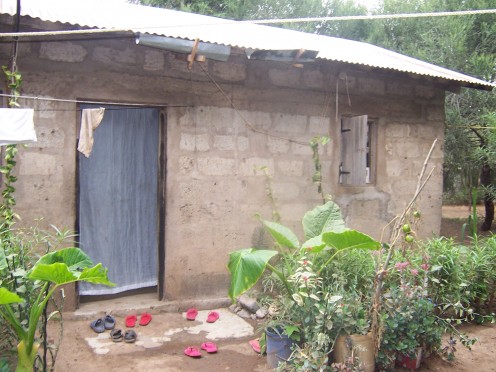
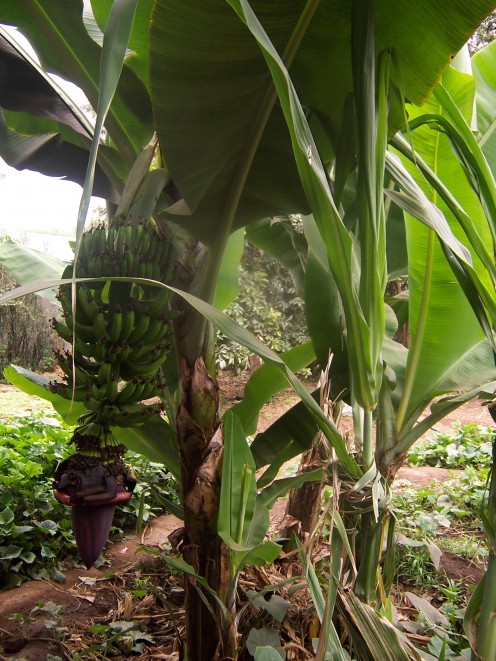
We finally arrived at the gates of her home. Inside I found a garden with all types of vegetables, a banana tree with a goat tied to it, and random chickens running around. The property consisted of three homes; the larger belonged to her father where all five unmarried siblings lived and the two married brothers occupied the houses immediately next door.
I received one of the grandest welcomes I can ever recall. The African people are by far the most hospitable culture I have ever encountered! The whole family was very excited to see me, and the younger children (who didn't speak any English) laughed at everything I said. The mother immediately came out and gave me a huge hug mumbling something in Swahili and laughing the entire time. She grabbed my head and nestled it against her cushioned body and large breasts and I was told by Neima that she was very happy to see a white person taking so much interest in her culture.
The youngest child brought me a traditional Maasai dish consisting of beef-stew soup poured over a bed of rice. The entire family watched me eat and insisted that I didn't leave until it was all done. In the African culture, especially the Maasai, they place more importance on food and family instead of materialistic belongings. It is customary that the head-of-the-household or the guest eat first before anyone else can even take one bite.
The family would be considered upper-middle class for African standards but would be considered lower class for American standards. The father was a business man and owned 1,000 acres of farm land outside the city as well as seven houses in their neighborhood (called villages) for rental property. Around town, their family would be considered successful, however I would have never guessed it by their home... which was small with old furniture, a vintage analog TV, and stained walls.
After dinner, the family offered up a room for me to stay in and told me I was now considered a Maasai person of the Laizer Tribe (which is their clan)! It truly was an honor. Through a translator, the father asked me what type of dowry is given in America when the girl is ready to marry. Wanting me to wed one of his sons, he wondered how many cows he should pay to my father. To his disappointment however, I humbly declined the offer.
My evening spent with Neima’s family was a wonderful culturally engaging experience, but it eventually was my time to leave. I had plans to go on a 4-day safari that was departing the following morning, but I had promised them that I would return later in the week.
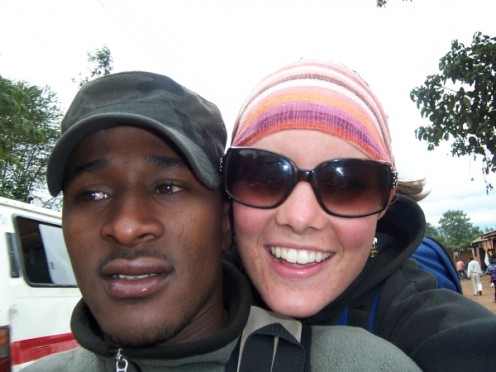
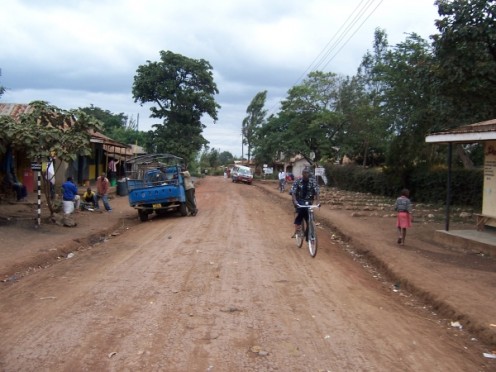

Journey to the Tribes
Upon my homecoming, they had agreed to take me out to one of their distant relatives who had been living in a primitive Maasai village a couple hours outside of Arusha. I was anticipating the adventure. Neima’s brother Manase, which means Born Again in Maasai culture, volunteered to drive me.
We packed up my belongings on to his dirt bike, and commenced the journey to the tribal villages. Within minutes, it was apparent that we no longer encompassed the safety net of the city. In every direction that I gazed, golden grassy plains extended well up to the horizon line. “Are you sure you know where you are headed Manase?” I asked apprehensively. “Of course I do, I’ve been out here a hundred times!” he exclaimed. Deep down, I had wished it was Neima that was taking me to the tribes. With her, I had somehow felt safer, but there was no turning back now. I would have to trust Manase, because he was now my lifeline; my only translator, and my only form of transportation. Neima put me in his care, so I would have to accept it.
Minutes soon turned into hours, and with every passing thought, I had wondered when we would arrive. Finally, to my delight and a now restored faith in Manase, we were there.
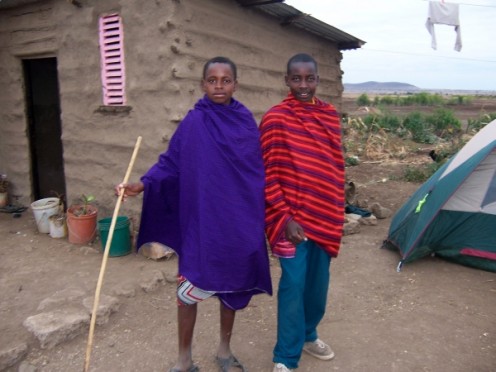
My Arrival
After the initial shock of my appearance and existence carried off with the wind, I was able to settle in before nightfall. I set up my 2-man tent next to one of the huts while the villagers were constantly hanging around me wanting to see what I was about. Manase was the only person who could speak English and became my translator for the weekend.
We spent the remaining hours of daylight herding sheep, and passing the peace pipe; which consequently put me in an incredibly magical metaphysical world of reality. Everything about the culture seemed to come together and I eventually, with time, came down to their level.
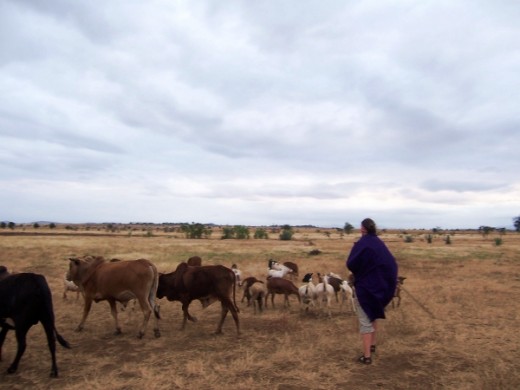
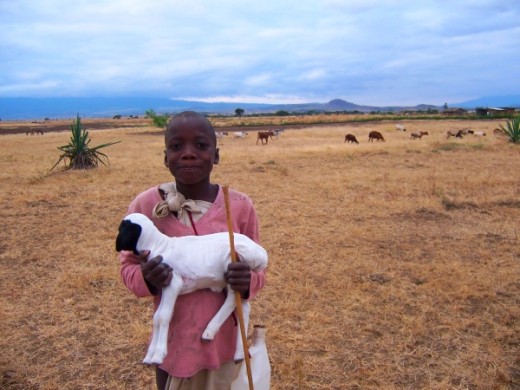
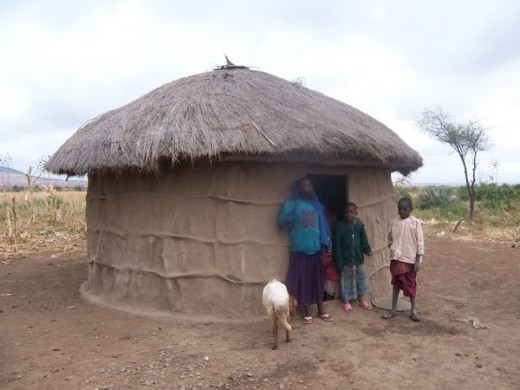
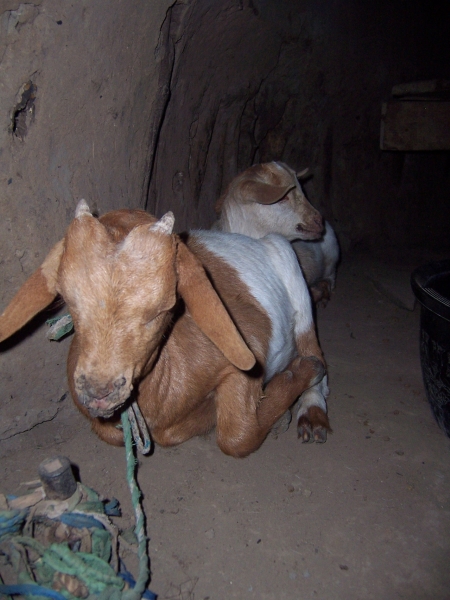
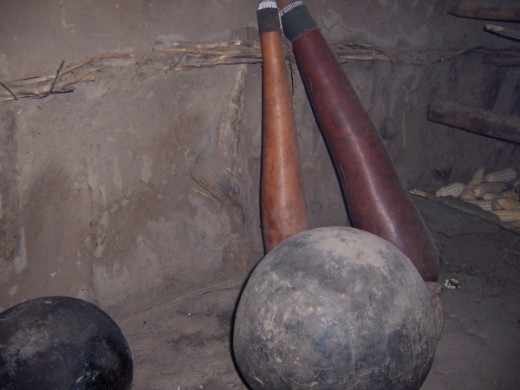
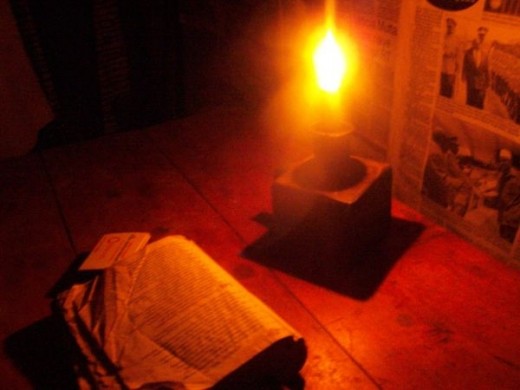
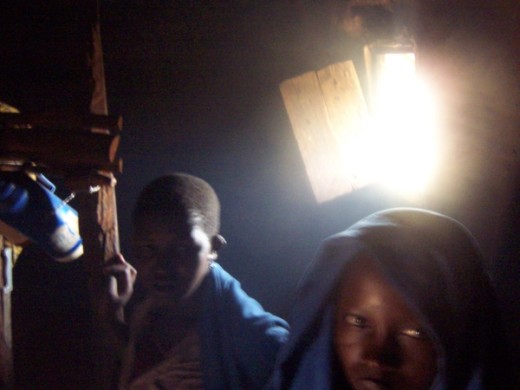
Roles of the Family
The women in the tribe had never even seen something as simple as a car and were afraid to approach me in the beginning. I would attempt to speak in Maasai language and it took them a while to even comprehend that I was conversing in their own words. When Manase finally informed the villagers that I was speaking their dialect, they immediately started laughing as soon as the unexpected connection was made!
It's a very traditional culture. The women are married at 14 and are owned by their husbands who pay 5-10 cows for them depending on how attractive they are. The more wives a man has, the more money he has. It's all a status thing. You are more respected in the clans if you have more women. The roles of each are primitive; the wife cooks three meals a day which take about two hours to prepare. In between cooking, they fetch water at the well (which is about 3 km away), clean, hand-wash the laundry, and somehow manage to care for the children. The husbands build things, work in the fields, or try to find work at the nearby Tanzanite mines. The children’s jobs are to attend to the herds... which usually consist of sheep, goats, and cattle. When I told one of the men that in America everything is done equally between men and women (such as we both go to work, take care of the children, and we both clean and cook)... he was absolutely flabbergasted. He couldn't comprehend a notion such as equality; I thought he was about to have a heart attack. The elder just shook his head gazing down at the ground contemplating such a scenario.
While the tribes are extremely primitive... such as no running water, no electricity, no health care.... everyone seemed to be quite happy with their lives. They don't have anything to compare it with and most don't realize that a completely different world exists just a mere 90 km away in Arusha. The rainy seasons are the worst they informed me, because that is when most villagers die. The mud is so bad that if someone is sick, they unfortunately can't transport them to a doctor. It broke my heart.
My Visit Concludes
My time spent with the Maasai people was insightful, and wonderful. I learned so much about their culture that would be nearly impossible to figure out from a textbook or in the classroom. I learned about sustainable development, and how to live off the land. I learned why the Maasai can fearlessly walk amongst lions, but why a white person can't. Their culture taught me not to place so much importance on material things, because at the end of day it's the people you surround yourself with that really matter. The way of life for the Maasai has been consistent throughout the generations; passing down cooking and farming technique is a valuable resource. I am almost certain that it will be such cultures that will prevail and thrive for the centuries to come. If Earth were to have a technological meltdown, modern society would be in a whirl of trouble. Our demographic would subsequently cease to exist while the tribes of Africa, and other 3rd world countries, would prosper until the end of time. So perhaps this can be a lesson to all of us; maybe we as a society need to get back to our roots and to learn the basics of life. It may someday, save us.




